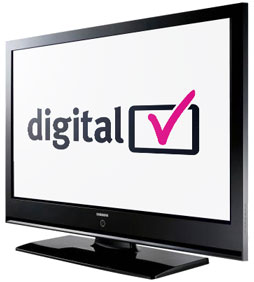The ‘Digital Switch Over’ (DSO) is the process by which the broadcast ecosystem will become digitalised. This entail the switch off of the present analogue format of broadcast and the allocation of broadband for the transmission of broadcast signals using cable networks. The process improves the quality of transmitted signals and enhances the reception. About a decade ago, precisely in the month of June 2009, the International Telecommunication Union (ITU) (the global body responsible for telecoms regulations) sitting in Geneva adopted June 2015 as the effective date for the global switch off of analogue broadcasting with effects that has simultaneous implications for all nations of the world.
That this date has universal application is sacrosanct and clearly appreciated by all stakeholders The effect of DSO and inability of nations to switch on to the digital broadcast template on the digital broadcast eco system is better imagined than experienced. For an incoming government that wants to hit the ground running, using mass mobilisation strategies to effect desirable change, it will have to rely on new broadcast technology to address issues pertinent to good and responsive governance. The federal government constituted the presidential advisory council on digital broadcast migration saddled with the responsibility of advising government on the appropriate modalities for the transition from analogue to digital broadcasting. The incoming administration need, to provide the necessary impetus and support that is expected from government with a political will to give the vision the financial muscle to achieve DSO project deliverables clearly enunciated in the blueprint document of the Council submitted to the presidency.
The National Broadcasting Commission has taken giant strides as the sector regulatory body towards the actualisation of the DSO in Nigeria. The important and most laudable step of NBC is the flag off of the complete digital switch over in Plateau State as a pilot state with the active support of the government of Plateau State and the Federal Ministry of Information in a tripartite arrangement that has given the nation the first total digital broadcast experience. Again the Commission under its Director General, Prince Emeka Mba , has invited competitive bidding for the manufacture of Set Top Boxes (STB), (a strategic component for digital broadcast reception by Households with Television Units (HTU) using analogue television sets.) The Commission is determined to meet the stipulated dateline for global Switch Over to digital broadcasting and the switch off of analogue broadcast format before the deadline. To this effect, the structural platform and configuration for digital broadcasting has been put in place in Nigeria with the selection of two main providers. The public sector driver is The Nigeria Television Authority which is partnering with Star Times Entertainment for the digital broadcast while the second digital broadcast driver is a licensed private broadcasting firm.
The idea is to promote a healthy rivalry and competition in delivery in the digital migration to Nigerians within a very affordable price ranges. While different region’s of the world struggle with their peculiar transition regime, it has been formally declared that Africa’s progress in migrating from analogue broadcasting to Digital Terrestrial Television (DTT) remains relatively slow. But it is accepted that digital broadcasting will stimulate indigenous digital entrepreneurs, engineers and professionals that will mean reduction in unemployment which is one of the cardinal objectives of the incoming administration; lead to the diversification of the domestic economy as different source of local and foreign cash inflows. Digital broadcasting ecosystem will increase the potential for internally generated revenue from non-oil sector and enhance the emergence of varieties of channels through programmer contents that will mean that more specialist broadcast certificates will be issued by the NBC and thus broadening the income / revenues accruable to the federal government to meet other funding needs within the national economy. It will provide the federal government with a veritable mass communication platform that meets global specifications for broadcast excellence.
The incoming administration communications policies will have to be structured along best global practices along the digital divide which implies the engagement of more professionals. Government communication policies will now be articulated and delivered to the grass root’s with clear and distinctive reception without the risk of communication barriers and interferences. The ability for mass mobilisation for change dissemination and grassroots penetration will be further enhanced. Presidential Advisory Council on digital migration has done a great job with the roadmap with timelines document on digital migration that has been submitted to the Federal Executive Council.
The advisory council is made up of tested professional media broadcast practitioners. The incoming administration should consider evolving strategic initiatives for the delivery of the blueprint. The luxury of time is just not there. The Council’s blueprint for digital migration is actually a master document awaiting fine tuning and implementation. In view of the pressures of time constraint, the National Broadcasting Commission in consultation with stakeholders has evolved a comprehensive profile of the estimated cost implication for digital switch over in Nigeria that should help the incoming administration prioritise or develop a scale of reference for financing opportunities to meet the 15th June, 2015 deadline.

